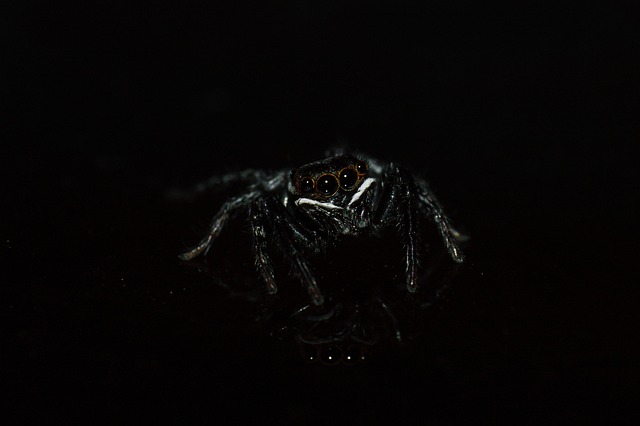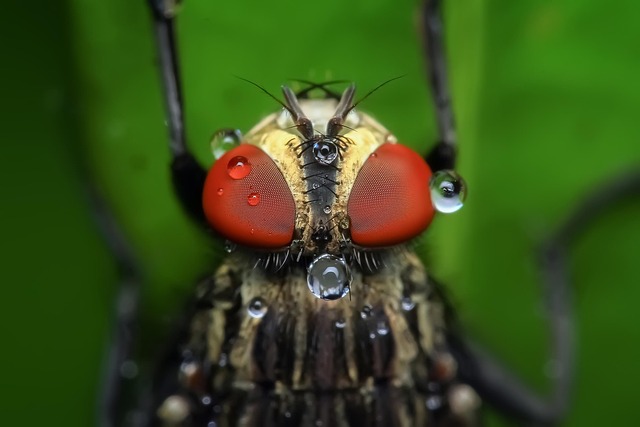A persistent musty smell in your Wheat Ridge basement could indicate pest infestations driven by moisture and decay. To identify the cause, inspect areas with excess moisture for leaks, condensation or flooding, and look for signs of pests like tiny holes, insect debris, or distinctive odors. If an infestation is suspected, contact professional Wheat Ridge basement pest control services promptly to eliminate pests and address moisture issues through sealing entry points, sanitizing surfaces, storing food in airtight containers, and ensuring proper kitchen ventilation.
Discovering an unwelcome visitor in your Wheat Ridge kitchen, such as ants, roaches, or mice, can be unsettling. Understanding these common pests and their behaviour is the first step to effective elimination. This article guides you through identifying not only visible signs but also subtler clues like a musty smell, which could indicate hidden infestations. Learn proven pest control strategies tailored for your basement kitchen to ensure a hygienic and pest-free environment. Start by pinpointing the source of that perplexing musty odour – it might just be the key to eradicating these pesky intruders.
- Understanding Common Kitchen Pests and Their Behavior
- Identifying the Musty Smell: Possible Causes and Remediation
- Effective Pest Control Strategies for Your Wheat Ridge Basement Kitchen
Understanding Common Kitchen Pests and Their Behavior

In the bustling kitchen environment, several pests can find their way in and quickly make themselves at home. Understanding these common intruders and their behavior is the first step towards effective kitchen pest elimination. One of the most disconcerting signs, often overlooked, is a musty smell, which could indicate the presence of common pests like mice or insects. For instance, a subtle earthy aroma in your Wheat Ridge basement might be a clue to an infestation, prompting you to call for professional pest control services.
These pests are attracted to kitchens due to the ready availability of food and water sources. Infestations can start with just one curious creature finding its way in through cracks or gaps around pipes, doors, or windows. Once inside, they quickly multiply, leading to a bustling symphony of activity behind the scenes. Identifying the source of the musty smell is crucial; it could be a sign of structural damage allowing entry or revealing hidden corners where pests have made their home, highlighting the need for meticulous cleaning and pest control measures.
Identifying the Musty Smell: Possible Causes and Remediation

If you’ve noticed a persistent musty smell in your Wheat Ridge basement, it could be an indicator of a pest infestation. This odor is often associated with moisture and decay, which are common signs of an underlying problem. The mustiness may come from various sources, such as mold growth, rotting wood, or even the presence of pests like termites, carpenter ants, or centipedes. These insects tend to thrive in dark, humid environments, making your basement an attractive habitat for them.
To pinpoint the exact cause, start by inspecting areas with excess moisture. Look for water leaks, condensation, or flooded sections. Check for visible signs of pests, like tiny holes in walls or floors, insect debris, or distinctive odors. If you suspect a pest issue, contact professional pest control services immediately. They will not only eliminate the current infestation but also provide strategies to prevent future invasions by addressing moisture problems and sealing entry points.
Effective Pest Control Strategies for Your Wheat Ridge Basement Kitchen

If you’re noticing a musty smell in your Wheat Ridge basement, it could be an indication of a pest infestation. The first step in effective kitchen pest control is identifying and addressing the source. Start by thoroughly inspecting your basement for any signs of water damage or moisture buildup, as these are prime conditions for pests like mold, millipedes, and spiders to thrive. Check behind appliances, under sinks, and in dark corners for eggs, larvae, or adult insects. Once you’ve located the entry points, seal them off with caulk or other appropriate sealing materials.
Next, focus on sanitization and cleanliness. Regularly clean and disinfect surfaces, especially around food storage areas and garbage disposals. Store food in airtight containers to minimize attraction, and ensure proper ventilation in the kitchen to deter pests from seeking out humid environments. For more severe infestations, consider professional pest control services that offer specialized treatments for basement kitchens. These experts can pinpoint hiding places, use targeted pesticides, and provide long-term solutions to keep your Wheat Ridge basement kitchen free of unwanted visitors.
When addressing kitchen pests and eliminating musty smells, identifying the source is key. By understanding common pest behaviors and implementing effective control strategies tailored for your Wheat Ridge basement kitchen, you can effectively manage and prevent future infestations. Remember, prompt action to locate and eliminate the source of a musty smell, often indicative of pest activity, is crucial in maintaining a clean and healthy living space. With the right approach, you can bid farewell to these unwelcome visitors and restore peace to your kitchen.
